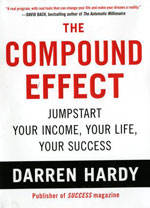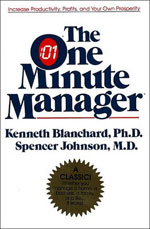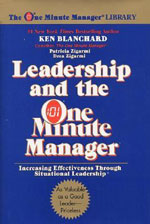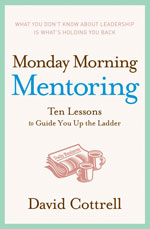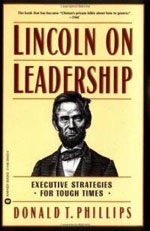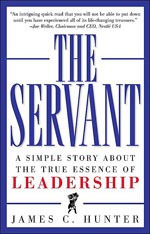In 1939, George B. Dantzig was studying mathematics at UC-Berkley. One day, arriving  late to a class, he discovered two problems he assumed were homework on the blackboard. As he attempted to solve the problem set, he noticed it was harder than usual. It also took him longer, causing him to miss the due date, but he decided to submit the homework to the professor anyway. Early one morning, weeks later, Danzig was awakened by his professor banging on his door, papers in hand, excited, and yelling, “They want to publish your paper!” The “homework” problems Danzig solved were in fact two famous and historically unsolvable statistical problems, which had been puzzling the greatest mathematicians for years. Danzig had something called “Positive Thinking” on his side – he was able to freely pursue a goal and be unfretted by self limiting beliefs to accomplish what many tenured mathematicians through history thought of as impossible. To Danzig these were just homework problems; why would they be unsolvable? They had to have an answer!
late to a class, he discovered two problems he assumed were homework on the blackboard. As he attempted to solve the problem set, he noticed it was harder than usual. It also took him longer, causing him to miss the due date, but he decided to submit the homework to the professor anyway. Early one morning, weeks later, Danzig was awakened by his professor banging on his door, papers in hand, excited, and yelling, “They want to publish your paper!” The “homework” problems Danzig solved were in fact two famous and historically unsolvable statistical problems, which had been puzzling the greatest mathematicians for years. Danzig had something called “Positive Thinking” on his side – he was able to freely pursue a goal and be unfretted by self limiting beliefs to accomplish what many tenured mathematicians through history thought of as impossible. To Danzig these were just homework problems; why would they be unsolvable? They had to have an answer!
Not too long ago in my career, as an Area Director I would see this “positive thinking” by observing a new TM hired onto my team. For those of you who have not attended our Emerging Leadership Training, we discuss Situational Leadership (SL) in great detail, and refer to these “newbies” as “Enthusiastic Beginners” (EBs). According to the SLII model, an EB is highly committed, but has a lower competence in the subject at hand. Although their competence starts out low on our products or competitors, I am always amazed at how new TMs are often able to outperform the more seasoned TMs with the launch of a new product or a challenging new corporate objective. Why do we see these phenomena in sales? I believe it’s based on how we use our mindsets to deal with self limiting beliefs. A new hire does not comprehend failure, so they don’t have self limiting beliefs when they start. Also, this mindset allows them to believe in the product completely. “This is the best product available – why wouldn’t I be able to sell it? “
Recently, I was speaking with an AD about a new hire having tremendous initial success with a new product. After selling $20K within one month of starting, this TM asked their AD, “So why do people think this is so hard?” If you look at the New Product Totem Pole or read the emails about successful TMs, more often than not they spotlight our newer hires. But let’s be realistic, a new TM will eventually hit a roadblock. This is where the fork in the road begins to form, which is solely dependent on the type of mindset the TM possesses. One type of TM is Fixed Mindset Frank, who believes he is who he is and his failures are centered on how smart, talented, and educated he is. With new product sales success, the “newbie” with the fixed mindset (non-learner) will give into self limiting beliefs like: I must have been lucky; I knew I wasn’t good enough; etc. As a result their results fizzle and they will fall into the pack of average. In contrast, Growth Mindset Gina can look beyond her self-limiting beliefs when faced with failure, which she sees as a one-time event to learn from. This pushes Gina to try even harder; the harder Gina fails, the harder she will try! Relating back to new product sales success, the new TM with initial success will inevitably have a setback, but the “newbie” with the growth mindset (learner) will face setbacks with positive affirmations, learn from the situation, and will try harder as a result to convert Altrus setbacks into future successes. So, how do you stay a “newbie selling machine”? It goes back to Danzig again—mindset enables overcoming self limiting beliefs.
It’s hard sometimes, but we must look at the challenges in each of our paths with the right perspective. By that I mean a growth mindset, where every setback is a learning experience, every challenge can be overcome with effort and determination, and every self-limiting belief is merely a thought that can be changed with positive affirmation. Most importantly, the more effort you put into new product sales (or any goal that you have in your life), your mindset around it, and reprogramming your subconscious to rid yourself of self-limiting beliefs, the further you will go on the road to success.










